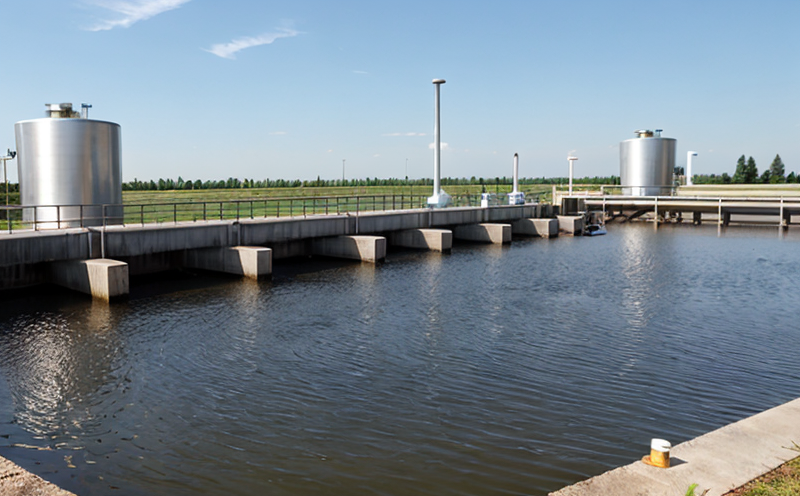ISO 21872 Vibrio cholerae Detection Testing Validation Method Development Test
The ISO 21872 method is a standardized approach designed for the detection and quantification of Vibrio cholerae, the bacterium responsible for causing cholera, in water and wastewater samples. This method ensures accurate and reliable results, which are critical for public health and environmental protection.
The ISO 21872 protocol is widely recognized by regulatory bodies around the world, including WHO (World Health Organization), EPA (Environmental Protection Agency), and local municipal authorities. It is particularly important in regions where cholera outbreaks occur or are a potential risk due to poor sanitation infrastructure.
This test involves several key steps: sample collection, preliminary isolation of Vibrio bacteria, enrichment, detection using PCR (Polymerase Chain Reaction) technology, and final confirmation through serotyping. The method is designed to minimize false positives and negatives by employing multiple stages of verification.
The ISO 21872 procedure ensures that laboratories can meet stringent quality control standards set forth in international guidelines. By validating the testing methods used within a facility, it helps ensure consistency and accuracy across different batches of samples and over time.
Understanding the nuances of this protocol is essential for those involved in water quality management, particularly in contexts where microbial contamination could pose significant health risks to populations dependent on local water sources. Compliance with such standards not only protects public health but also aligns with global efforts towards sustainable development goals related to clean water and sanitation.
A critical aspect of implementing ISO 21872 lies in ensuring that all personnel handling samples are trained thoroughly on proper techniques to avoid cross-contamination or errors during sample preparation. Additionally, maintaining appropriate laboratory conditions—such as temperature control for incubation periods—is crucial for obtaining reliable results.
Given its stringent requirements and emphasis on accuracy, ISO 21872 has gained widespread acceptance among various sectors including municipal utilities, private water treatment companies, academic institutions conducting research into infectious diseases, and international aid organizations working on improving access to safe drinking water worldwide. Its use helps establish trust in the quality of services provided by these entities.
By adopting ISO 21872 as part of routine operations, organizations can demonstrate their commitment to maintaining high standards of hygiene and safety while also contributing positively towards global health initiatives aimed at reducing incidences of cholera outbreaks.
International Acceptance and Recognition
The ISO 21872 method has been accepted globally due to its robustness and reliability in detecting Vibrio cholerae. Its widespread adoption can be attributed to several factors:
- Regulatory Compliance: Many countries mandate the use of standardized methods like ISO 21872 for monitoring water quality, ensuring compliance with international health standards.
- Global Health Initiatives: Organizations focused on improving global health recognize the importance of accurate detection and quantification of pathogens such as Vibrio cholerae.
- Precision and Accuracy: The multi-step process outlined in ISO 21872 reduces the likelihood of errors, providing precise results.
- International Collaboration: The method fosters collaboration between laboratories across different regions, enhancing overall efficiency and effectiveness.
These benefits make ISO 21872 a preferred choice for numerous stakeholders in both developed and developing nations. It plays an integral role in safeguarding public health by ensuring that water supplies meet stringent safety criteria.
Environmental and Sustainability Contributions
The implementation of ISO 21872 contributes significantly to environmental sustainability efforts, particularly regarding water quality management. By accurately detecting Vibrio cholerae, this method helps prevent the spread of disease through contaminated water sources.
Waterborne diseases like cholera can have severe impacts on human health and ecosystems alike. Through precise monitoring and control measures enabled by ISO 21872, there is a reduction in the risk of such incidents occurring. This not only protects public health but also supports broader environmental conservation goals.
Incorporating this standard into daily practices encourages responsible resource use, thereby promoting sustainable development practices. It ensures that water resources are managed effectively, reducing waste and minimizing negative impacts on aquatic environments.
Furthermore, adherence to ISO 21872 promotes transparency within the industry, allowing stakeholders to track progress towards achieving sustainability objectives more accurately. This fosters trust among consumers who value responsible corporate behavior and contributes positively to brand reputation.
Use Cases and Application Examples
| Use Case | Description |
|---|---|
| Municipal Water Supply Monitoring | Detection of Vibrio cholerae in drinking water supplies ensures compliance with international health standards. |
| Private Sector Compliance | Water treatment plants and bottling companies verify their processes meet regulatory requirements using ISO 21872. |
| Agricultural Irrigation Systems | Preventing contamination of irrigation water sources helps protect crops from microbial pathogens. |
| Medical Waste Treatment Facilities | Ensuring wastewater does not contain harmful Vibrio cholerae is vital for safeguarding both human health and the environment. |
| Use Case | Description |
|---|---|
| International Aid Organizations | Improving access to safe drinking water in developing regions by ensuring proper sanitation practices. |
| Academic Research Institutions | Conducting research into infectious diseases, including the spread of cholera through contaminated water sources. |
| Environmental Protection Agencies | Monitoring and controlling microbial contamination in various bodies of water to maintain ecological balance. |
| Private Water Bottlers | Verifying that bottled waters are free from Vibrio cholerae before they reach consumers. |





